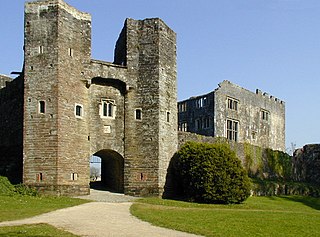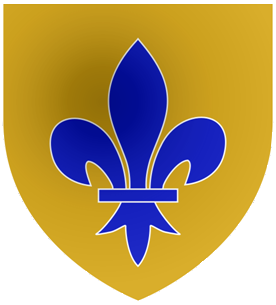Related Research Articles

Robert Bruce, 1st Earl of Ailesburyand 2nd Earl of Elgin, PC, FRS, was a British politician who sat in the House of Commons from 1660 to 1663, when he inherited his father's title as Earl of Elgin.
Major General William Alington, 3rd Baron Alington LL was an Irish peer.
Sir Richard Onslow was an English politician who sat in the House of Commons at various times between 1628 and 1664. He fought on the Parliamentary side during the English Civil War. He was the grandson of one Speaker of the House of Commons and the grandfather of another, both also called Richard Onslow.

Sir Edward Seymour, 3rd Baronet of Berry Pomeroy Castle was an English politician who sat in the House of Commons at various times between 1640 and 1688. He fought for the Royalist cause in the English Civil War.

Sir John Morton, 2nd Baronet of Milbourne St Andrew in Dorset, was an English landowner and politician who sat in the House of Commons between 1661 and 1695.

John Dawnay, 1st Viscount Downe, known as Sir John Dawnay between 1660 and 1681, was an English politician who sat in the House of Commons between 1660 and 1690.

Sir William Portman, 6th Baronet FRS was an English politician who sat in the House of Commons between 1661 and 1690.
Robert Spencer, 1st Viscount Teviot, styled The Honourable Robert Spencer until 1685, was an English politician from the Spencer family who sat in the House of Commons from 1660 to 1679.

Sir Robert Barnham, 1st Baronet of Boughton Monchelsea Place was an English politician who sat in the House of Commons from 1660 to 1679.
Sir John Franklyn of Dollis Hill, Middlesex was an English politician who sat in the House of Commons at various times between 1625 and 1648.

Thomas Crew, 2nd Baron Crew of Steane, Northamptonshire was an English politician who sat in the House of Commons at various times between 1654 and 1679, when he inherited the peerage Baron Crew.
Sir Charles Hussey was an English politician who sat in the House of Commons in two periods between 1656 and 1664.
Sir Thomas Meres, of Lincoln and Bloomsbury, Middlesex, was an English lawyer and Tory politician who sat in the English and British House of Commons between 1659 and 1710. He showed a remarkable level of activity both within and outside Parliament, particularly during the reign of Charles II.
Sir Philip Howard was an English soldier and politician who sat in the House of Commons between 1659 and 1679.
Sir Christopher Musgrave, 4th Baronet was an English landowner and politician who sat in the House of Commons from 1661 to 1704, and briefly became Father of the House in 1704 as the member with the longest unbroken service.
Sir William Bassett was an English landowner and politician who sat in the House of Commons between 1669 and 1693.
Sir William Wiseman, 1st Baronet of Rivenhall Place, Rivenhall End, Essex was an English landowner and politician who sat in the House of Commons between 1677 and 1685.
Sir Francis Compton was an English soldier and politician. He sat in the Cavalier Parliament of the House of Commons between 1664 and 1679.
Sir William Cook, 2nd Baronet (c. 1630 - January 1708, of Broome Hall, Norfolk was a member of the East Anglian gentry and Tory Member of Parliament.
References
- 1 2 George Edward Cokayne Complete Baronetage, Volume 3 1900
- ↑ Kent: Canterbury - Marriage Licence allegations, Dean of Westminster, 1558-1699 and Vicar-General of the Archbishop of Canterbury, 1660 to 1679 (Marriage
| Parliament of England | ||
|---|---|---|
| Preceded by Henry Caesar Rowland Lytton | Member of Parliament for Hertfordshire 1661–1679 With: Sir Thomas Fanshawe Sir Henry Caesar Viscount Cranborne William Hale | Succeeded by Silius Titus William Hale |
| Baronetage of England | ||
| New creation | Baronet (of Moor Park) 1660–1685 | Succeeded by Richard Franklyn |